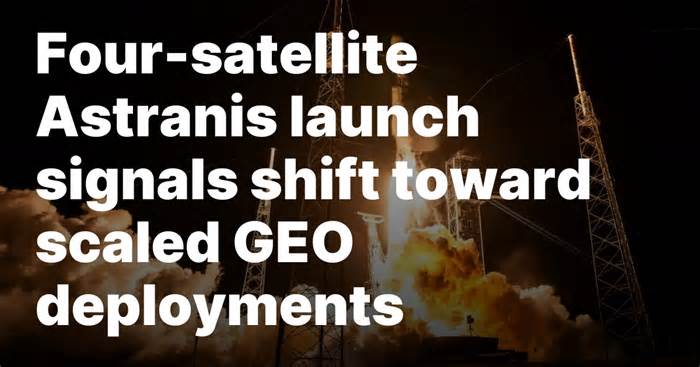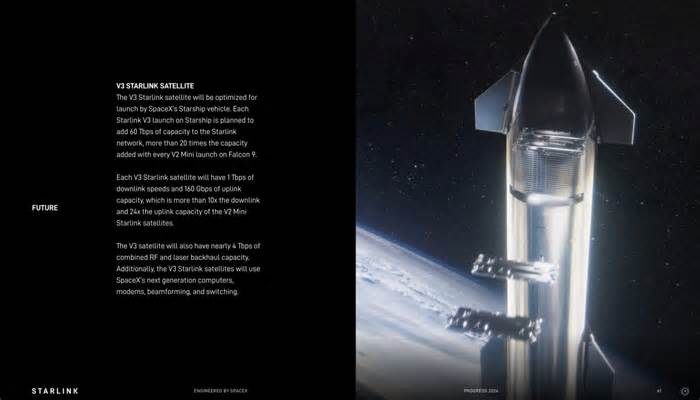
Four-satellite Astranis launch signals shift toward scaled GEO deployments
- by SpaceNews
- Dec 28, 2024
- 0 Comments
- 0 Likes Flag 0 Of 5

Two Block 2 satellites, NuView Alpha and NuView Bravo, are en route to geostationary orbit over the Americas for inflight connectivity provider Anuvu.
Another satellite called Agila was sold to Orbits Corp, part of Philippine internet service provider HTechCorp, and Astranis said it would be the first communications satellite ever dedicated to the Philippines.
Astranis describes the fourth satellite, UtilitySat, as a multi-mission spacecraft set to serve several customers throughout its operational life.
UtilitySat was initially flagged to provide bridge capacity over Alaska; however, Keil said it would first provide communications over Mexico for Apco Networks, a Mexican telco that has ordered two of the five Block 3 Astranis satellites aims to launch together next year on an undisclosed rocket.
“This UtilitySat mission will be an accelerator to that mission — giving them capacity to get started and get some market traction before the two dedicated sats launch,” Keil said.
Astranis has not announced any more UtilitySat customers beyond Apco.
The company operates its satellites and sells the capacity under long-term leases. At the size of a dishwasher, they are much smaller than typical school bus-sized GEO spacecraft and are scaled for smaller regional coverage.
In a statement, Astranis CEO John Gedmark said: “With this launch we will prove that Astranis can ship and operate multiple satellites at once.
“We are well on our way to the increased manufacturing cadence we need to hit to meet all of customer demand, including both commercial and government.”
Block 3 also includes a replacement for Pacific Dataport, another satellite for Orbits Corp, and one for Thai fleet operator Thaicom.
In 2026, Astranis plans to start deploying next-generation Omega broadband spacecraft that would be slightly bigger than previous generations to deliver five times more throughput.
Industry evolution
According to Keil, the Dec. 29 SpaceX mission also saw Astranis become the fourth company to deploy four or more satellites to GEO in a calendar year, joining established fleet operators SES, Intelsat, and Eutelsat.
Astranis has also now launched more satellites to GEO over the last two years than any other operator, amid a declining geostationary market that has been losing ground to low Earth orbit constellations.
Switzerland’s Swissto12 is also looking to carve out a role in the small GEO market, aiming to deploy its first satellites in 2026 after winning four orders in total from Viasat and Intelsat.
Related
Please first to comment
Related Post
Stay Connected
Tweets by elonmuskTo get the latest tweets please make sure you are logged in on X on this browser.
Sponsored
Popular Post
Middle-Aged Dentist Bought a Tesla Cybertruck, Now He Gets All the Attention He Wanted
32 ViewsNov 23 ,2024
tesla Model 3 Owner Nearly Stung With $1,700 Bill For Windshield Crack After Delivery
32 ViewsDec 28 ,2024






 Energy
Energy



















